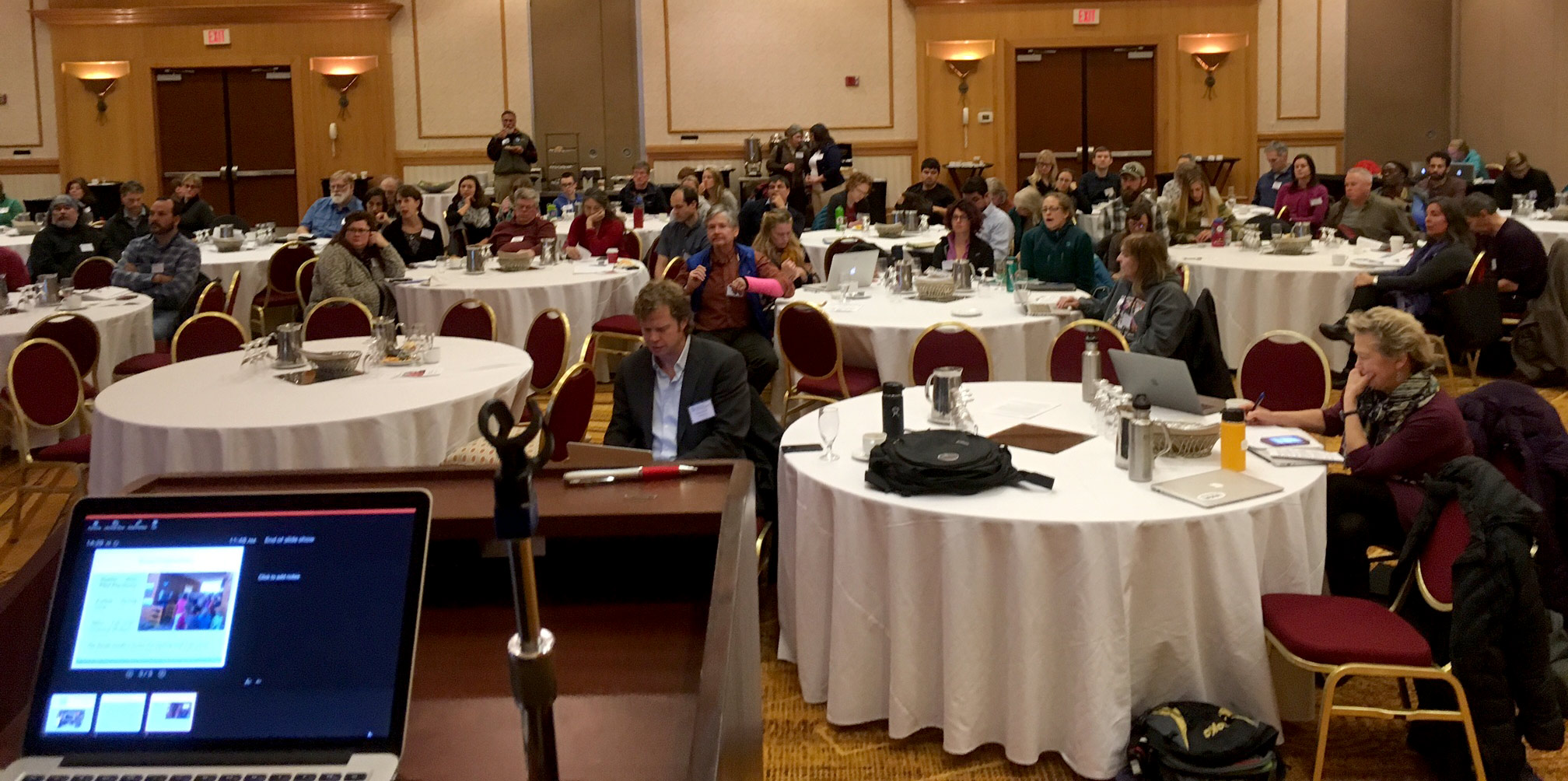
Participants from around the state listen to the latest on monitoring, research, impacts to species, and thoughts on adaptation.
The Alaska Ocean Acidification Network hosted a workshop in Anchorage on Nov 30-Dec 1, inviting a broad audience across the state interested in ocean acidification issues.
Around 250 people joined in person or remotely. Satellite viewing sites were located in Cordova, Fairbanks, Homer, Juneau, Kodiak, Nome, Seward, Sitka, and Unalaska. The South High science bowl team and a class from Palmer High also attended.
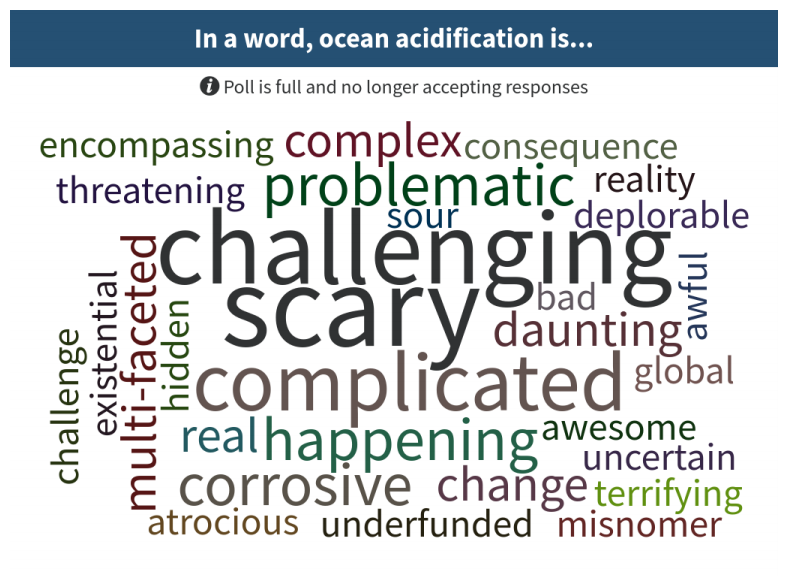
The audience participated in a group polling activity that aggregated answers in real time. This image is the response to the question, “In a word, ocean acidification is….”
The aim of this workshop was to educate the broader Alaska community on the processes and consequences of OA, create connections between researchers and stakeholders, and develop new ideas and partnerships to enhance monitoring and community engagement. A report on the state of the science in Alaska is underway and will be posted in January.
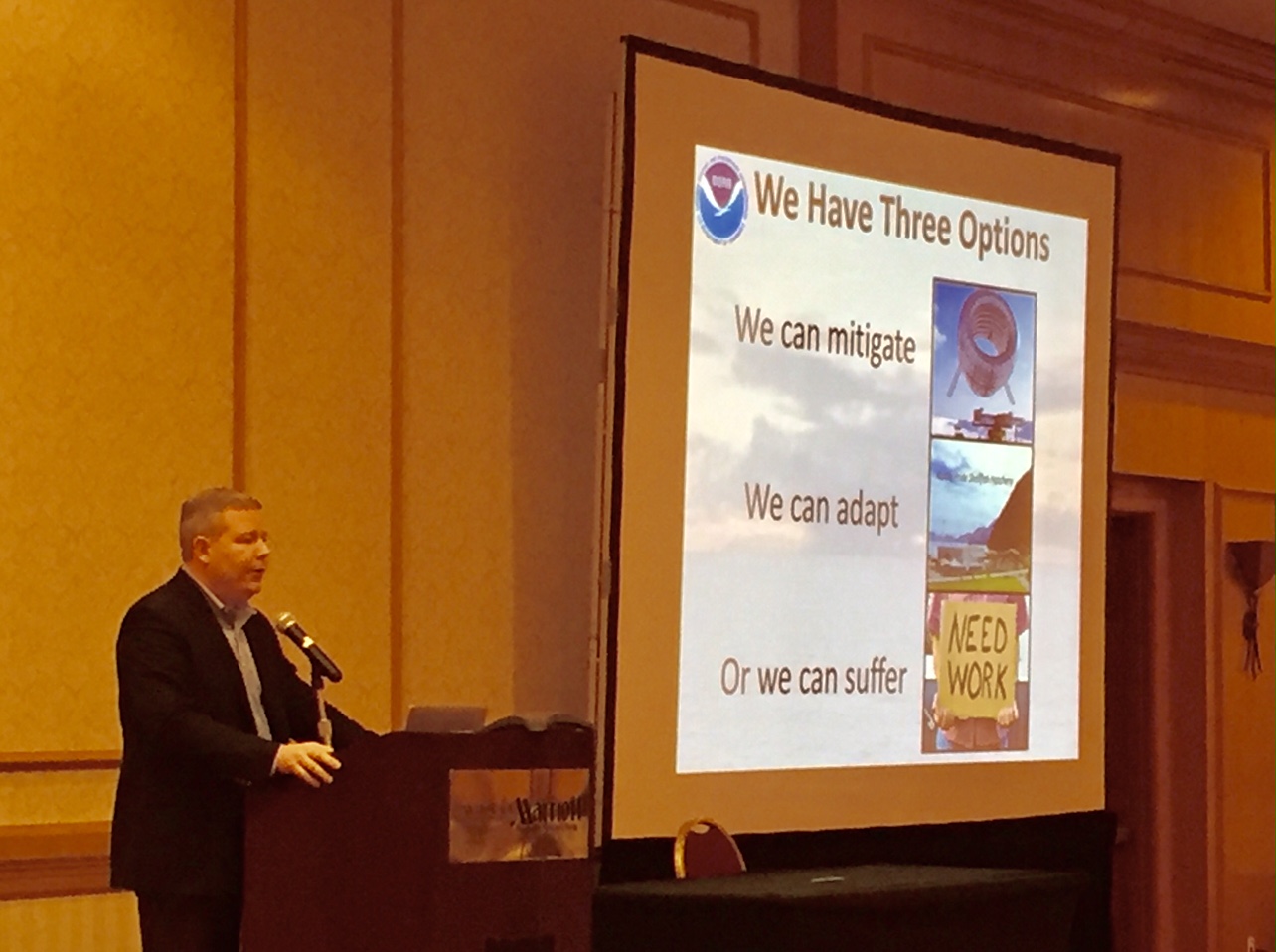
Jeremy Mathis, founder of UAFs Ocean Acidification Research Center and director of NOAA’s Arctic Program, talks about adaptation strategies.
AGENDA
November 30 (main day)
Welcome (Darcy Dugan, AOOS)
OA in the policy context: Remarks from Senator Murkowski (by video) and Senator Sullivan (via Alaska office director Mike Fleagle) (audio)
Ocean acidification in Alaska – OA basics, current monitoring efforts, trends, and areas of highest concern (Jessica Cross, NOAA/OARC) (ppt, video)
Discussion and questions
Community engagement and communicating OA – connecting information with stakeholders (Meg Chadsey, Washington Sea Grant) (ppt, video)
OA in the national context – federal strategy, program activities, policy initiatives – (Libby Jewett, NOAA OAP Director) (ppt, video)
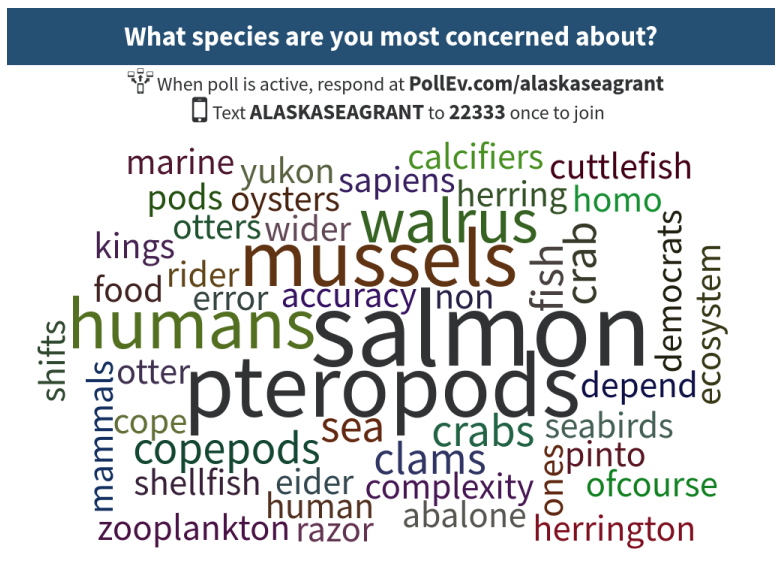
This word cloud shows the audience response to the question about “What species are you most concerned about?
Flash talks on Monitoring Projects (video from this session unavailable due to technology failure)
– Instrumenting the AK Marine Highway: Wiley Evans, Hakai Institute (ppt)
– Alutiiq Pride projects: Jeff Hetrick, Alutiiq Pride Shellfish Hatchery (ppt)
– Kachemak Bay monitoring: Angie Doroff, Kachemak Bay Research Reserve (ppt)
– New Sitka initiatives: Esther Kennedy, Sitka Tribe (ppt)
– OA kiosk & outreach – Hannah Heimbuch, Alaska Marine Conservation Council (ppt)
Flash talks on biological impacts (video for this session’s flash talks)
– Crab – Bob Foy, NOAA Kodiak Lab (ppt)
– Clams – Amanda Kelley, UAF OARC (ppt)
– Groundfish – Amanda Kelley, UAF OARC (ppt)
– Zooplankton – Dick Feely, NOAA PMEL (ppt)
OA and the shellfish industry – research/industry partnerships uncovering new insights (Burke Hales, Oregon State) (ppt, video)
OA in the Pacific Northwest – findings and lessons learned (Jan Newton, NANOOS) (ppt, video)
Forecasting and modeling ocean acidification – lessons from the Pacific Northwest and the Gulf of Alaska (Sam Siedlecki, Univ. WA) (ppt, video)
Why are Alaska waters so susceptible to OA? – (Dick Feely, NOAA PMEL) (ppt, video)
An OA adaptation strategy for Alaska – (Jeremy Mathis, NOAA) (ppt, video)
Wrap-up and interactive audience polling – (Darcy Dugan, AOOS)
Networking Reception
December 1
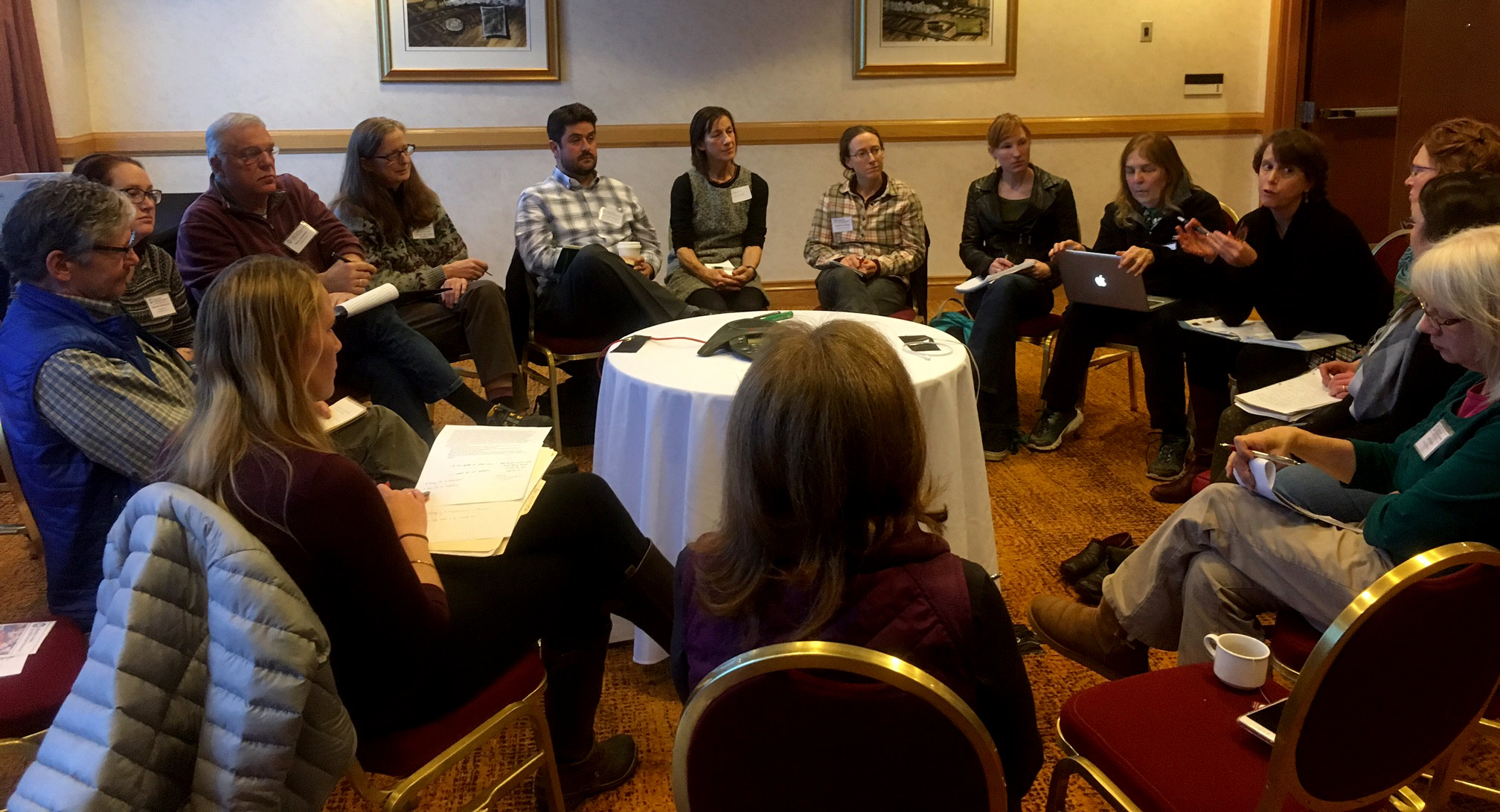
A breakout group discusses how to engage the fishing community in ocean acidification on Day 2.
Expanding and leveraging the Alaska Ocean Acidification Network: Facilitated discussion and breakouts. Topics to include (1) Engaging the fishing community in ocean acidification, (2) Tribal involvement in ocean acidification monitoring, (3) Responding to ocean acidification for shellfish growers, (4) Developing Alaska-specific strategies for communicating OA to decision makers. Session descriptions. Report back (starting part-way through group #1).
Session for Researchers
Alaska OA Network Steering Committee Meeting: Review network goals, plan activities for upcoming year, discuss long term role of network, establish long-term members and a chair.
Please email network coordinator Darcy Dugan, dugan@aoos.org, with questions.
